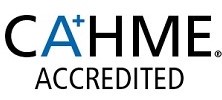
The Definitive Resource for Healthcare Management Education in North Texas
The Center for Healthcare Leadership and Management (CHLM) facilitates collaboration among the school’s six academic programs in healthcare to offer industry-responsive education in order to prepare and equip industry-ready students.
Nationally, healthcare spending is approaching $4 trillion, representing almost 20 percent of the Gross Domestic Product. In the North Texas region alone, healthcare spending is estimated at $52 billion. Hospitals, clinics, research, ambulatory care, post-acute care and fiscal intermediaries are all part of this. As a growing industry, healthcare demands a more purposeful and integrated approach to workforce preparation and education. North Texas hospitals and hospital systems are large employers, creating over 240,000 jobs and injecting billions of dollars into the economy through employee salaries, retail sales and sales taxes. Hospitals provide jobs for an immense range of skill levels with opportunities for upward mobility in the profession.
About Us
The Center for Leadership and Management’s Role in the Growing Healthcare Sector
The healthcare industry is increasingly complex and demands a well-prepared workforce. The Naveen Jindal School of Management plays a unique role in training the next generation of healthcare leaders to meet local, regional and national demands.
Unlike other educational institutions that provide education predominantly through clinical or allied health professional programs, the Jindal School of Management utilizes its strengths in accounting, administration, finance, marketing and information systems to educate highly qualified personnel.
Mission
The mission of the Center for Healthcare Leadership and Management (CHLM) at the Jindal School of Management is to meet the challenges of a rapidly changing, technology-driven healthcare industry by:
- Conducting research that enhances management knowledge
- Delivering high-quality leadership and management education to a diverse group of undergraduate and graduate students and practicing executives and physicians
- Developing, innovating and continuously improving programs that advance leadership and management education and practices
Vision
The Center for Healthcare Leadership and Management will:
- Become the definitive resource for healthcare leadership and management education in North Texas
- Facilitate collaboration among the school’s five academic programs
- Offer industry-responsive education that will prepare industry-ready students
- Become nationally recognized for academic/industry collaboration and integration
Academics and Certificates
The Center for Healthcare Leadership and Management (CHLM) serves as an influential and respected resource for healthcare management education. The CHLM coordinates and synchronizes the school’s five healthcare management academic programs.
The program provides a foundation in the healthcare field while teaching business acumen that produces industry-ready graduates for entry-level management positions.
The program provides graduate-level education to prepare industry leaders with a solid foundation in business analysis and exposure to real-world healthcare management.

This cohort program provides critical knowledge, skills and academic credentials for physicians who have moved into a leadership role in their hospital, health system, group practice or professional organization.
This new graduate program provides healthcare professionals with five or more years of healthcare or similar industry experience with insights and tools needed to emerge as healthcare leaders, developing the necessary skills to master strategic planning and executive leadership roles in any organization.
Since 2011, the Organizational Behavior and Coaching Program has partnered with major healthcare systems to offer cohort-based, organization-specific degree programs.
Specifically, large healthcare organizations are able to sponsor an Executive MBA or MS degree program in healthcare organization leadership that is customized to fit the unique needs and issues specific to their organization. For instance, UT Southwestern Medical Center, Texas Health Resources, and Parkland Health and Hospital System have sponsored such a program to provide a formal business education as well as leadership development to their leaders and high-potential employees.
Cohorts are hand-selected by the senior leadership of the organization from a list of applicants, who are then invited to attend this elite program. To accommodate the demanding schedules of these busy professionals, classes are delivered using a blended learning approach that combines on-site intensives with online learning technology. This blended delivery model guarantees both quality and convenience.
To ensure organizational relevance, the subject matter taught in both degree programs draws from illustrations and case studies specific to the sponsoring organization. At UT Southwestern Medical Center, for example, the knowledge and skills needed to measure and improve the quality of both clinical and patient service processes are taught using UT Southwestern data and quality initiatives. Senior leaders within the organization join the teaching faculty within their area of specialty to provide an organizationally relevant context for all subjects during on-site intensives. Prior to graduating, students are required to participate in capstone projects to utilize what they have learned during their degree program to solve actual organizational problems or issues deemed important by the senior management team who initially selected the students.
Finally, students are assigned executive coaches to help them develop as professionals and apply what is being taught to their specific work situations. Coupled with a graduate-level education, organizationally-relevant application and an integrated executive coaching component, graduates are able to make a value-added contribution to their sponsoring organization while enhancing their educational credentials.

Robert Hicks, PhD
Director, Organizational Behavior and Executive Coaching Program
Center for Healthcare Leadership and Management Development
The Center for Healthcare Leadership and Management’s growth is assured through coordination and collaboration among the Jindal School’s existing healthcare programs.
Committed resources include:
- Administrative support to coordinate programs, internships, employment opportunities, sponsoring events and alumni
- Additional adjunct and professionally qualified faculty capable of teaching established healthcare professionals
- Industry networking and connectivity through local, regional and national boards and associations
- Sponsorship of major alumni events, lecture series and conferences involving nationally recognized speakers
Connect with the Center for Healthcare Leadership and Management on social media:




